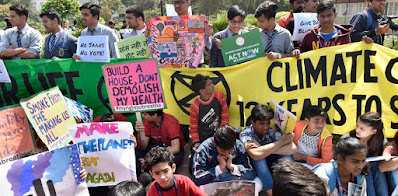Worldwide inequality is 25% greater compared to it would certainly have remained in a climate-stable globe
Those the very least in charge of worldwide warming will experience one of the most. Poorer nations – those that have added much much less to environment alter – have the tendency to be located in warmer areas, where extra warming triggers one of the most devastation. Severe weather condition occasions such as Syria's extended dry spell, Southern Asia's devastating downpour floodings, and Cyclone Idai in South-East Africa, the 3rd most dangerous cyclone on document, are ending up being much a lot extra most likely and much a lot extra serious.
These occasions are disproportionately bringing fatality, variation, and plant failing. Consequently of this, forecasts approximate that the economic climates of poorer, warmer nations will be gravely hurt by environment alter over coming years, while the colder, richer nations in charge of the large bulk of the additional CO2 airborne might also profit in the short-term. However as brand-new research study exposes, this isn't simply a future issue – the financial injustice of environment alter has currently been running for 60 years.
The examine, released in the Procedures of the Nationwide Academy of Sciences, contrasted various countries' GDP per head – a determine of the typical person's financial basic of living – in between 1961 and 2010. It after that utilized environment designs to approximate what each country's GDP would certainly have been without the impacts of environment alter. The searchings for are plain.
Agen Resmi Hadirkan Judi Bola Paling Lengkap
Numerous poorer countries' economic climates have quickly expanded in the last half a century, albeit frequently at fantastic social and ecological set you back and to the profit of the globalised economic climate. However also that development has been held back significantly by environment alter – the space in GDP per head in between richer and poorer nations is 25% greater compared to it would certainly have remained in a climate-stable globe. And with many richer nations resting listed below and poorer nations over the 13℃ typical yearly temperature level at which financial efficiency tops, worldwide temperature level increase is an instant chauffeur of this inequality.
Of the 36 nations with the most affordable historic carbon discharges, which are likewise a few of the poorest and most popular nations on the planet, 34 have experienced a financial strike compared with a globe without warming, shedding typically 24% of GDP per head. The poorest 40% of nations, a lot which lie in sub-Saharan Africa, Australia or europe, and Main and Southern The u.s.a., have shed in between 17 and 31% of GDP in the last fifty percent century.
India, among the most affordable emitters per head, has been considered a financial development champ in current years – however environment alter has slowed down its development by 30%. While the country's solutions industry has grew, the agricultural industry – which utilizes fifty percent of India's overall labor force – has experienced significantly. A three-fold increase in severe rains occasions and enhanced serious droughts have decreased plant yields and trigger in between $9 and 10 billion in damages annually to the agricultural market alone.
The exact very same occasions likewise routinely bring India's metropolitan financial centers to a standstill. With 12m residents, Mumbai has the world's biggest populace subjected to seaside swamping. Deluges in 2005 and 2014 required the city's worldwide flight terminal and roadways to shut, and set you back millions in residential or commercial home damages.



